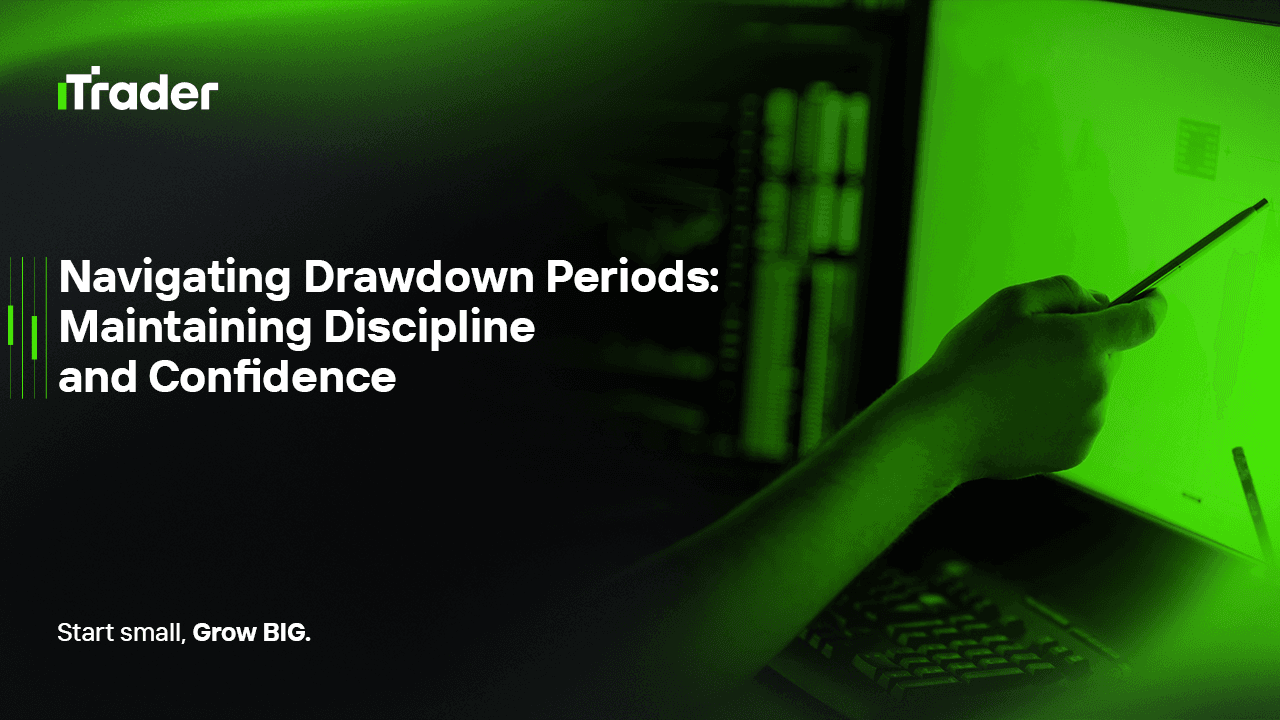2025-08-04
Forex trading is not merely a technical or strategic exercise—it is a deep psychological endeavor. While developing a profitable system is crucial, a trader’s long-term success ultimately depends on how well they manage their mental resilience during adverse periods. Among these, drawdowns are particularly challenging, especially for prop traders working under evaluation, pressure, and strict risk limits.

In this blog, we’ll explore the emotional structure behind drawdowns and provide a detailed roadmap on how professional traders can maintain discipline and confidence even when facing consecutive losses or underperformance.
A drawdown is the decline in account equity from a peak to a trough. It represents the temporary loss in value due to a sequence of losing trades. While mathematically it is just a number, psychologically it carries significant weight.
Drawdowns manifest in two major dimensions:
A drawdown is inevitable in any robust strategy. What varies is how traders respond to it.
During a drawdown, traders often go through five psychological stages:
Each stage poses a decision-making risk. Discipline and belief are what keep traders grounded and systematic throughout this cycle.
Discipline is the ability to follow predefined rules and logic-based actions, even under stress.
Discipline is about responding based on criteria, not emotion. A well-crafted protocol turns panic into controlled responses.
Discipline is the foundation of consistent performance. During drawdowns, it's what separates professionals from gamblers.
Staying confident in your system—even when it underperforms—is a sign of maturity in trading psychology.
A robust performance review framework helps separate natural drawdowns from systemic failure.
Keeping a journal is especially valuable during drawdowns. It reveals behavioral patterns and strategy weaknesses.
Include:
This creates a feedback loop that improves both your system and your psychology.
Prop traders face additional pressure during drawdowns:
To manage these risks:
In prop trading, drawdowns are not just technical declines—they are emotional storms. To navigate them successfully:
Success is not defined by how well a strategy performs at its peak, but by how committed you remain when it underperforms. True trading mastery comes when you can follow your plan—not just during the highs, but more importantly, through the inevitable lows.
© 2025 iTrader Global Limited|公司註冊編號:15962
iTrader Global Limited 註冊於科摩羅聯盟昂儒昂自治島穆扎穆杜 Hamchako,並受科摩羅證券委員會授權與監管。我們的牌照編號為 L15962/ITGL。
iTrader Global Limited 以「iTrader」為商業名稱經營,獲得從事外匯交易活動之授權。公司標誌、商標與網站均為 iTrader Global Limited 之專有財產。
iTrader Global Limited 的其他子公司包括:iTrader Global Pty Ltd,澳洲公司註冊編號(ACN):686 857 198。該公司是 Opheleo Holdings Pty Ltd 的授權代表(澳洲金融服務代表編號:001315037),Opheleo 持有澳洲金融服務執照(AFSL 編號:000224485),註冊地址為:Level 1, 256 Rundle St, Adelaide, SA 5000。
免責聲明:本實體並非本網站所交易金融產品之發行者,亦不對其負責。
風險提示: 差價合約(CFD)交易因槓桿效應具高度資本迅速損失風險,未必適合所有使用者。
參與基金、差價合約及其他高槓桿商品交易,需具備專業知識。
研究顯示,84.01% 的槓桿交易者最終蒙受損失。請務必充分了解相關風險,並在投入資金前確保自身已準備好承擔全部損失的可能性。
iTrader 特此聲明,對任何個人或法人因槓桿交易所導致之風險、損失或其他損害,概不承擔全部責任。
使用限制: iTrader 並不向法律、法規或政策禁止此類活動的國家或地區居民提供網站或服務。如您居住於限制使用本網站或服務之司法管轄區,您有責任自行確保遵守當地法律。